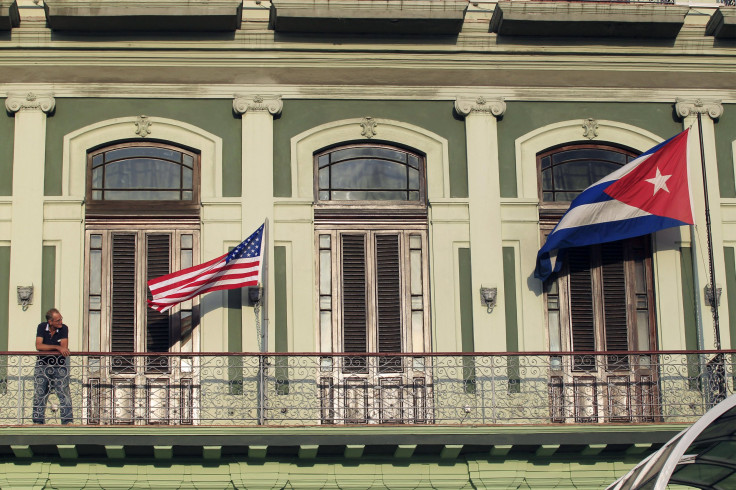US And Cuba Lay Ground For Human Rights Talks

The United States and Cuba are kicking off talks Tuesday on the most sensitive issue between the two countries: human rights. This week’s preliminary meeting is unlikely to yield any blockbuster results, since representatives will be hammering out just a framework for future discussions, but it could be a crucial step for Washington and Havana to broach thornier issues later, including freedom of the press in Cuba and U.S. detentions in Guantanamo Bay.
“We come with full awareness of the profound differences in conceptions and positions between both countries in terms of political systems, democracy and international rights, but also that it is possible to have a civilized dialogue on any topic, including human rights,” said Cuba’s ambassador to the United Nations, Anayansi Rodriguez Camejo, at a press conference Monday.
U.S. Assistant Secretary of State Tom Malinowski will be leading the U.S. delegation for the talks. Cuba will be represented by Pedro Luis Pedroso, deputy director general of multilateral affairs and international rights.
The human rights discussions are running parallel to talks the U.S. and Cuba have already begun on normalizing relations. So far representatives have held three rounds of normalization talks, in which they discussed steps to reopen their embassies. Officials haven’t yet announced a date for a fourth round. However, on Monday a senior State Department official told Reuters that Cuban authorities are aiming to expand Internet connections to 50 percent of the population in the next five years.
Human rights are perhaps the biggest sticking point in the U.S.’s relationship with Cuba. International rights organizations have frequently highlighted arbitrary detentions and crackdowns on dissidents on the island, and U.S. lawmakers have consistently pointed to the human rights situation as a main reason to keep the 53-year U.S. embargo on the island in place.
Cuban diplomats, meanwhile, have criticized the U.S.’s detentions at Guantanamo Bay and the use of torture, and earlier this year spoke out about “alarming cases of brutality and police abuse” in the U.S. in light of the killings of Michael Brown and other unarmed black men by police officers.
Mistrust still runs deep on both sides, and both U.S. and Cuban officials acknowledge the normalization process and human rights discussions will be lengthy and complicated. But Tuesday’s talks still mark a critical step in the overall progression of the U.S.-Cuba relationship.
“As the Cuban government and other actors in Cuban society are exploring or experimenting with new approaches, a human rights dialogue can put issues on the table,” Geoff Thale, program director for the Washington Office on Latin America, wrote in a commentary Tuesday.
“It’s not a magic answer, but it’s a positive step,” he added.
The U.S.-Cuba rapprochement is expected to be the centerpiece of the regional Summit of the Americas, which takes place in Panama April 10. Cuba will participate in the summit this year for the first time since it was suspended from the Organization of American States in 1962. The Obama administration had originally planned to reopen the U.S. Embassy in Havana ahead of next week’s summit, but in recent days officials have been quiet on whether that will be feasible.
© Copyright IBTimes 2024. All rights reserved.





















